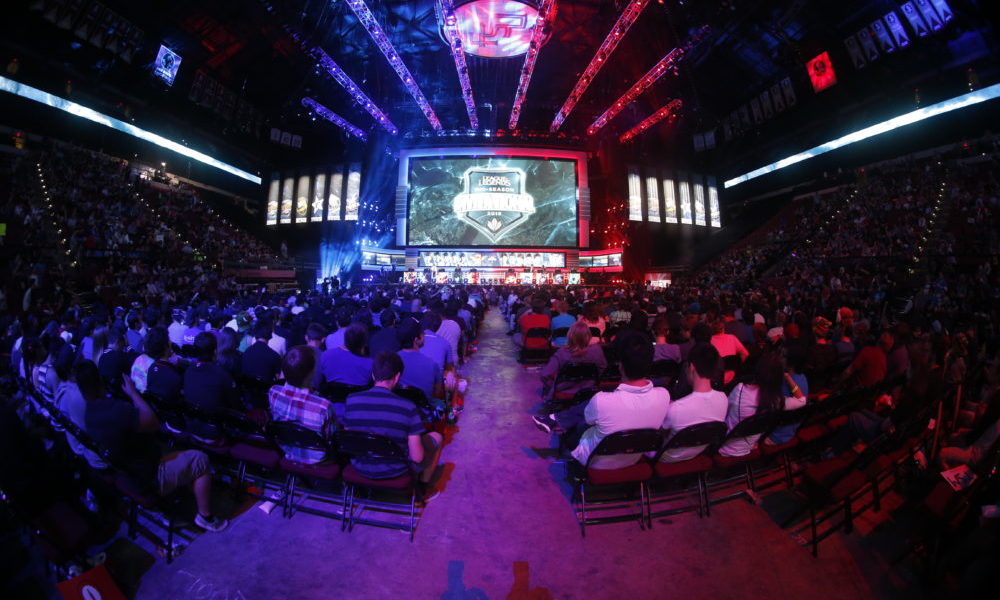This morning I Googled ‘lol’ expecting the top results to tell me that this was short for ‘laughing out loud’. Far from it, all the top results instead pointed me to League of Legends sites, one of the most popular competitive games in existence.
League of Legends is certainly leading the eSports charge, but just how popular is eSports as an industry as a whole? Let’s take a look at the numbers.
$100bn in annual revenues is forecast to flow into the global games industry this year
$693m of that total comes from eSports, a figure set to hit $1.5bn by 2020
11.1bn eSports videos were streamed last year in China alone
The numbers speak for themselves, and with Alex Lim, secretary-general of the International eSports Federation, leading an audacious bid to have the genre recognised as an Olympic event by 2024, the eSports industry has the potential to rocket.
This growth hasn’t gone unnoticed; from broadcasters, to betting companies, to brands looking for advantageous sponsorships – brands are looking to stake a claim in the industry.
The Competition Begins – Broadcasting Rights
Traditionally consumers have watched tournaments by viewing online or attending live shows, but media giants are starting to broadcast the matches too.
Twitch, which was acquired by Amazon in 2014, is the go-to leader in online videogame broadcasting and streaming. It may not hold its position for long, though, with ESPN, Sky and Turner competing to broadcast eSport tournaments and take the competitions to a wider and more diverse global audience. This also has the effect of further legitimising these competitions as sports.
Big Brands Want In On The Party – Sponsorships
Supporters of eSports are often avid players too and many brands want a piece of that deeper engagement. eSports sponsorship has the advantage of going beyond the logo placement, with in-game features and interactive content, on top of traditional sports marketing benefits.
This week saw the opening of Red Bull’s new eSports Studio in London where gamers can watch big tournaments, or run their own. Hosting a sporting activity makes a lot of sense for an energy drink and is a clear partnership.

As with global sports, more reserved brands are seeing the potential now too. Audi, for example, has sponsored a number of CS:GO teams and tournaments, and “once you pop, you can’t stop”… Pringles has opened up to a long-term sponsorship of ESL (the world’s largest eSports competition organiser company).
Now You Can Lose (Or Win) Your Shirt – High-Stakes Gaming
eSports quickly developed a sub-culture of betting on eSports matches. Based on blockchain and bitcoin, the sub-culture drew criticism for potential money-laundering … so it cleaned up its act. Too much was at stake.
Now betting is mainstream with many of the major gaming companies offering specific odds on eSports tournaments and matches. William Hill, Betway and Skybet all offer the latest odds to registered UK fans looking for more skin in the game.
With the ultimate aim of instant, in-game wagers adding to the thrill, this is clearly just the kick-off.
So what? … What next?
As eSports continues to broaden its appeal and reach it could learn a few lessons from similar breakthrough entertainment properties. The most obvious is UFC, with its direct-to-audience approach to streaming and its commercial acumen.
For brands, this will mean great opportunities to link with the audiences. Red Bull is busy writing the playbook here: it goes deeper than logos-on-kit – brands have to show they are superfans, have to contribute to the hype through their social channels and, most importantly, find relevant propositions that appeal to the widest fan base. Then pull the trigger…
For more entertaining insights into Gaming or an eSports videogaming, VR or AR demo, please contact TVE


